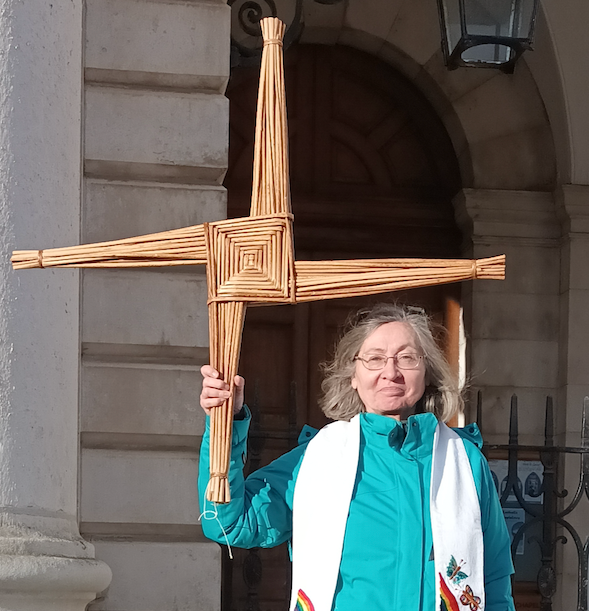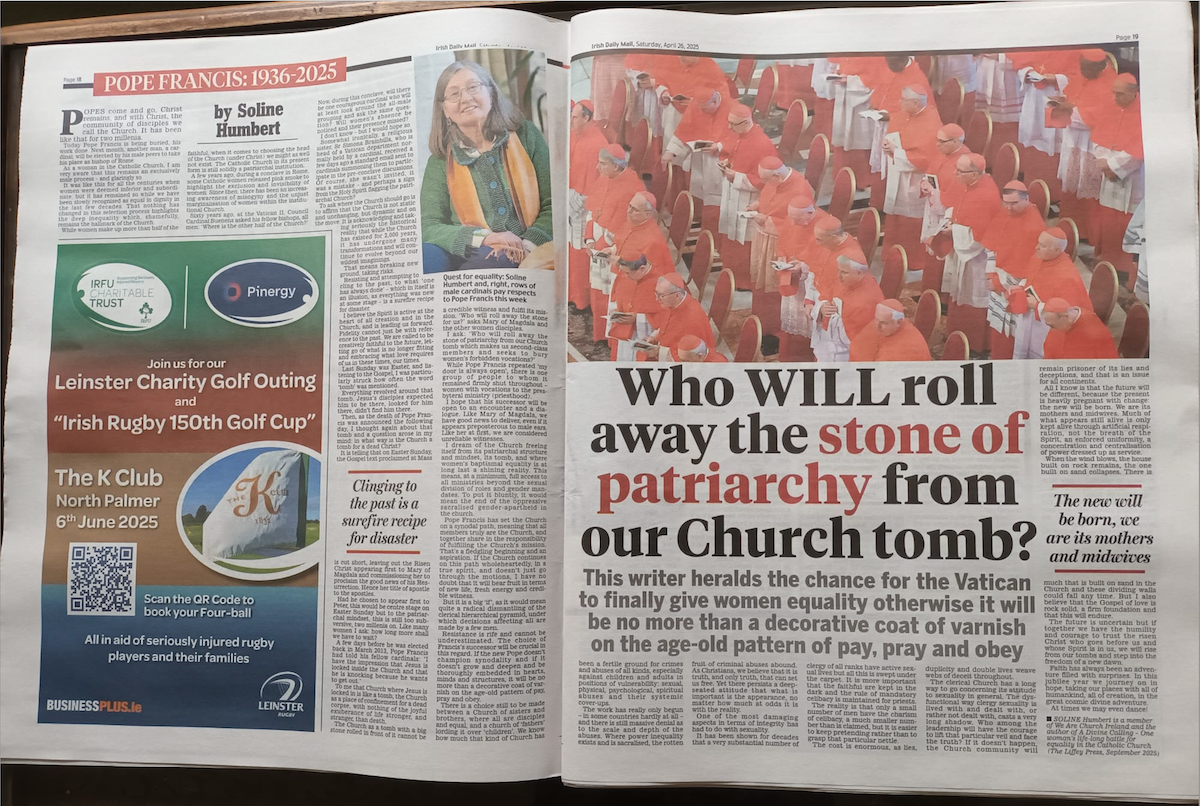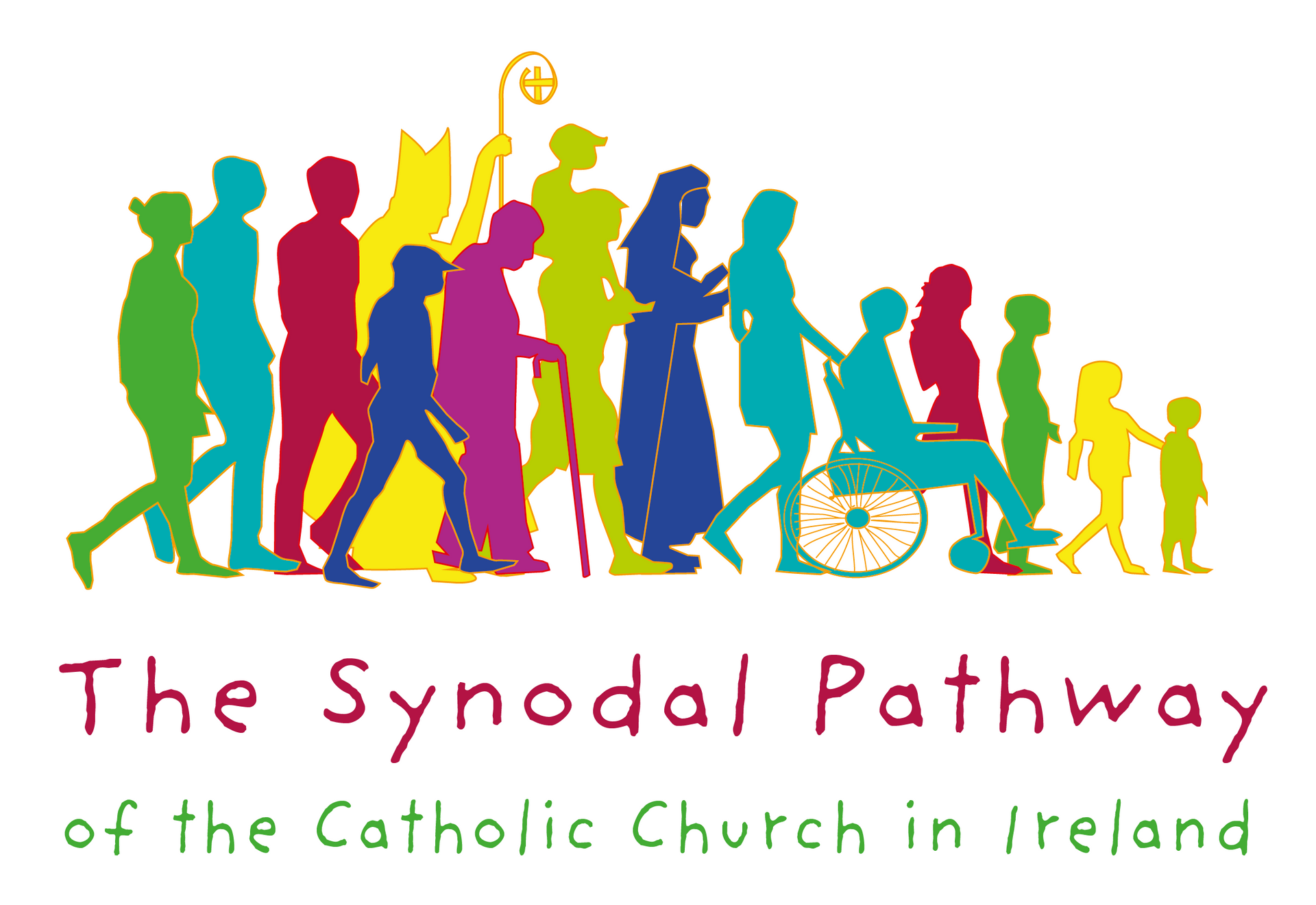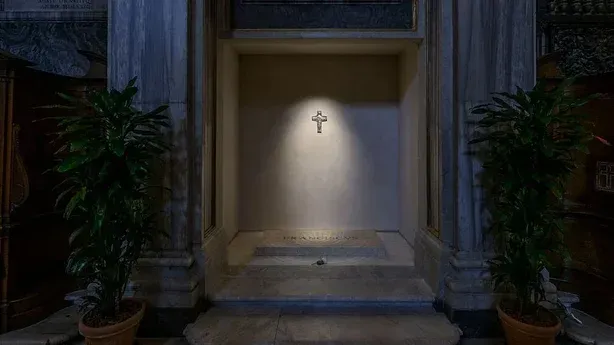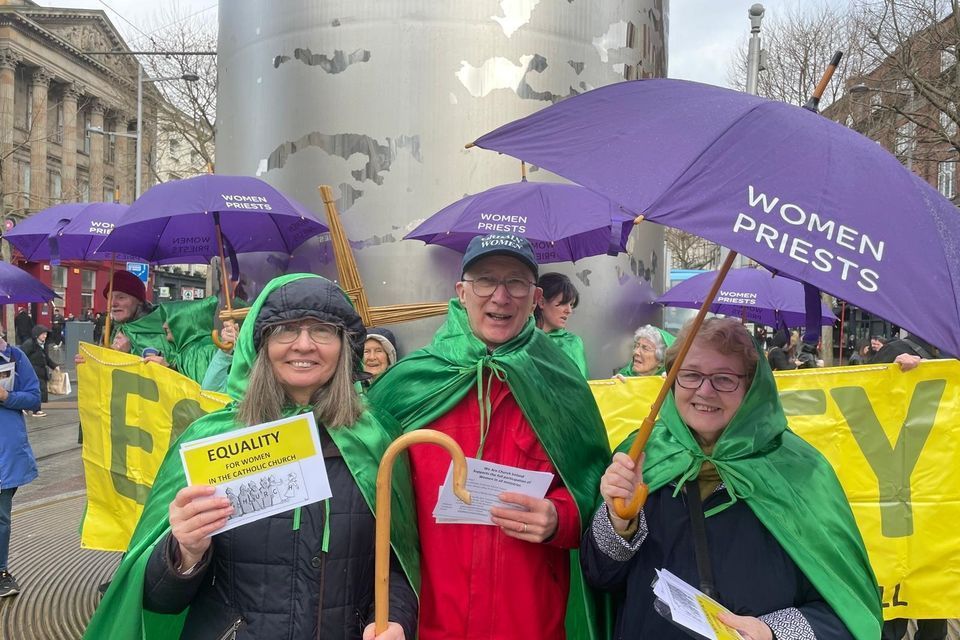Comment of Dr Mary McAleese on the instrumentum laboris
It is a dull document but perhaps all the cans that have been kicked down the Synodal road will yet create a din that cannot be ignored.

Comment of Dr. Mary McAleese on the instrumentum laboris
The instrumentum laboris, that is the working preparatory document which will inform the October 2024 meeting of the Synod of Bishops, is worthy, wordy and ultimately disappointing in its grating piousness and its tediously wordy repetition.
Deep buried in its 20000 words are the barely recognisable remnants of the distilled discernment of those who in good faith participated in the global synodal process over these past two years believing as Pope Francis had promised that there would be freedom of speech, an open agenda and there would be “nothing about us without us”. The participants views have now been synthesized, edited and thinned out of any subject vaguely touching on controversy. Anyone hoping for clarity on the greater inclusion of women and LGBTIQ+ which were priority demands right across the globe, will likely be disappointed. The latter do not even merit a mention but presumably (hopefully) are among those described as feeling “excluded or on the margins of the ecclesial community or who struggle to find full recognition of their dignity and gifts within it. This lack of welcome leaves them feeling rejected, hinders their journey of faith and encounter with the Lord, and deprives the Church of their contribution to mission”. That message seems to have at least been received even if one has to dig to find in it some crumb of comfort for LGBTIQ+ Catholics.
The issue of the exclusion of women fares a little better for at least they merit a particular mention. However discussion of their greater participation in ecclesial decision making is advanced mainly as a subject for further study and in the broader context of developing greater lay involvement in Church non-ordained ministries and administrative roles. Will a road-map to that promised land emerge in October 2024?
There are three references to “the circularity of the synodal process” and the “circularity of dialogue”. There can be little doubt that these references accidentally get close to the truth. The synodal process has led the Church round in circles to what purpose remains to be seen. Women and LGBTIQ+ are not only no better off at this juncture in the process but have endured emphatic dismissal of their cases from Pope Francis himself with regard to ordination to deaconate and priesthood, and blessing for same sex married Catholic couples. His interventions robbed the Synod of freedom of speech and an open agenda on two live issues which were manifestly of wide concern among the faithful. Will the synodal process over time prove to be the leaven in Church thinking which opens space for updating of the magisterial teachings, practices and processes which deliberately deprive the Church of the talents of many who do not just feel excluded but actually are excluded. The document fails to admit that these “feelings” of exclusion are grounded in a reality for which the magisterium is responsible and which the Pope has full primatial power to redress any day of the week.
The instrumentum laboris is not likely to excite or inspire the many who were baptised into the Catholic Church but who have exercised their inalienable human right to freely leave the Church (a right not recognised in canon law) whether to embrace another faith, give up on faith altogether, whether in righteous anger over clericalism, misogyny, homophobia, physical and sexual abuse of children by clergy, episcopal protection of criminal clergy and neglect of their victims …. the reasons are many, all valid and unlikely to be reversed by the synodal process so far.
It is a dull document but perhaps all the cans that have been kicked down the Synodal road will yet create a din that cannot be ignored. The People of God made this Synodal process their own until their voice was dubbed over in Vatican-speak but in the vague plans the instrumentum laboris discloses for ongoing, regular formal synodal dialogue at every level of the Church there remains the hope that that voice of the faithful will not be snuffed out but will grow stronger, more synodally sure of itself.
Meanwhile let us hope the circus full of elephants left out of the synodal room are noisy enough to be heard inside despite the heavy duty sound-proofing.
